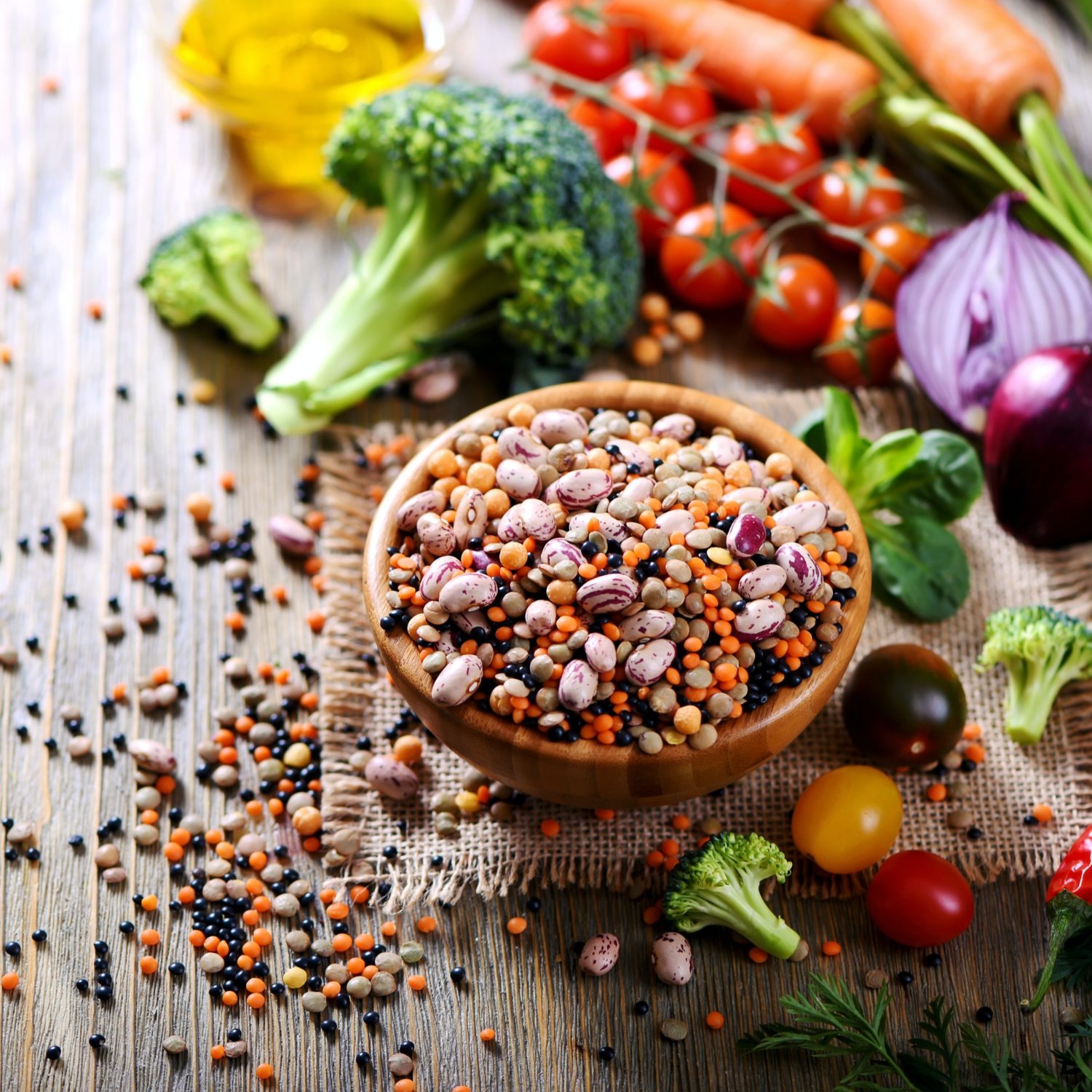My definition of a plant-rich diet is when you eat mostly plants, like vegetables, low-glycemic fruits, and legumes. Plants should be the majority of your diet. From there, it depends on your physiology and health goals. For example, many do well adding organic grass-fed/pasture-raised (high-quality) meat on the side. Many others feel better without meat in their diets. Like I said, it depends on your body’s physiology and your health goals!
Here is my nutrition philosophy for heart health (and overall health):
1) Fill your plate with mostly plants in the form of whole vegetables, whole fruits lower in sugar, and legumes (lentils and beans).
2) High-quality meat on the side if you can tolerate it, organic grass-fed/pasture-raised.
3) Meet your macronutrient needs: enough protein, healthy fats, and lower glycemic carbohydrates with lots of fiber and nutrients.
4) Meet your micronutrient needs: vitamins and minerals. For example, if you are vegan, you have to make sure you are getting enough B12, omega-3’s, and Vitamin D from other sources.
5) Choose organic. The soil in organic farms is much healthier, thus giving plants much higher nutrients. Also, non-organic crops are sprayed with RoundUp and other toxic chemicals, which are highly associated with cancer and other health problems. When you aren’t eating organic, you are eating RoundUp. You can spend less elsewhere (like expensive coffee drinks and unnecessary items) to save money to take care of your health this way.
6) Eliminate highly-processed foods. For example, there are many packaged items with vegetarian and vegan labeling, but the food is highly-processed. Choose plant-based items in whole forms, like whole vegetables, whole fruits, and legumes. Organic sprouted soy is way healthier than the alternative if your physiology tolerates it (non organic soy is heavily sprayed with chemicals and is grown as a GMO).
7) Use lots of herbs and spices in your food.
8) Eat seeds and nuts.
9) Keep flour and unhealthy sugar products to a minimum.
A Plant-Rich Diet and Heart Disease
A plant-based diet in the form mentioned above is a very healthy and sustainable way to live. This type of diet can lower unhealthy cholesterol levels, blood pressure, inflammation, oxidative stress, and the risk for cardiovascular disease.
Research has found that people who eat more plants have better health outcomes than those who don’t consume as many vegetables or other whole foods. They are more likely to prevent heart disease!.

